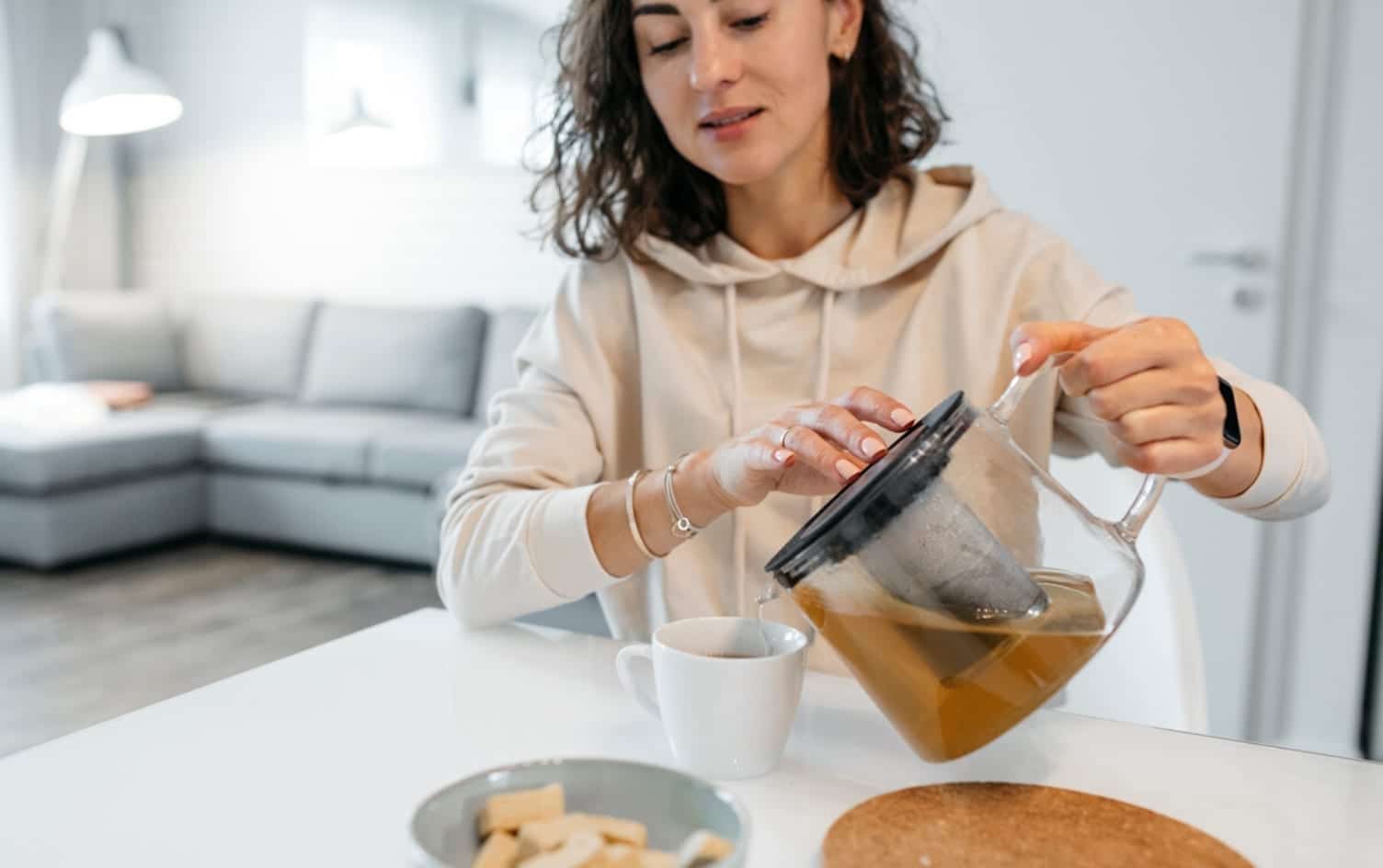Is what you drink affecting your ability to lose weight? The short answer is yes. Liquid calories play a huge part in our health, and the amount you consume is directly related to your ability to control the number on the scale.
Beverages go down quicker and easier than food. But that’s also the definition of “mindless” consumption: not paying attention while we’re doing other things like driving, working, watching television or sports, catching up with friends, etc.
Sodas, as most of the MyFitnessPal community knows, are liquid sugar. They do little to satiate hunger. But that’s also true of many other beverages, including energy drinks, lattes with syrups, bottled green teas, smoothies, sports drinks, alcoholic beverages, sweetened teas and, yes, even those fresh-pressed organic juices from your local juice bar. Most of these contain a lot of sugar and very little fiber to help keep you full. A few hundred calories per day can add up quickly, as many people fail to factor liquid calories into their daily intake.
Always read nutrition labels, and choose beverages with little- to no-added sugar and calories. Alcohol is where things can get tricky, as calories, fat, sugar and carbohydrates aren’t required to be listed on labels. With 7 calories per gram of alcohol — it’s the second most concentrated source of calories, more than both carbohydrates and fat. It’s also absorbed directly into the bloodstream, meaning your body doesn’t burn extra calories in order to process and break it down.
Many of today’s trending craft beers have as much as 200–250 calories per pint, and that’s just for one. Wine has around 120 calories per 5-ounce pour, if you can limit it to just a glass. Cocktails mixed with sodas, simple syrups and tonic waters add up quickly, too — and come in much smaller portions that “vanish” rapidly. Limiting alcoholic beverages is one of the first steps you can take for successful weight loss.
But wait: The good news is there are a few things (other than water) that you can start sipping that may aid your efforts to shed some pounds. Drinking to promote better hydration, sleep and digestion can also help with weight-loss efforts. Here are five quaffs to consider.
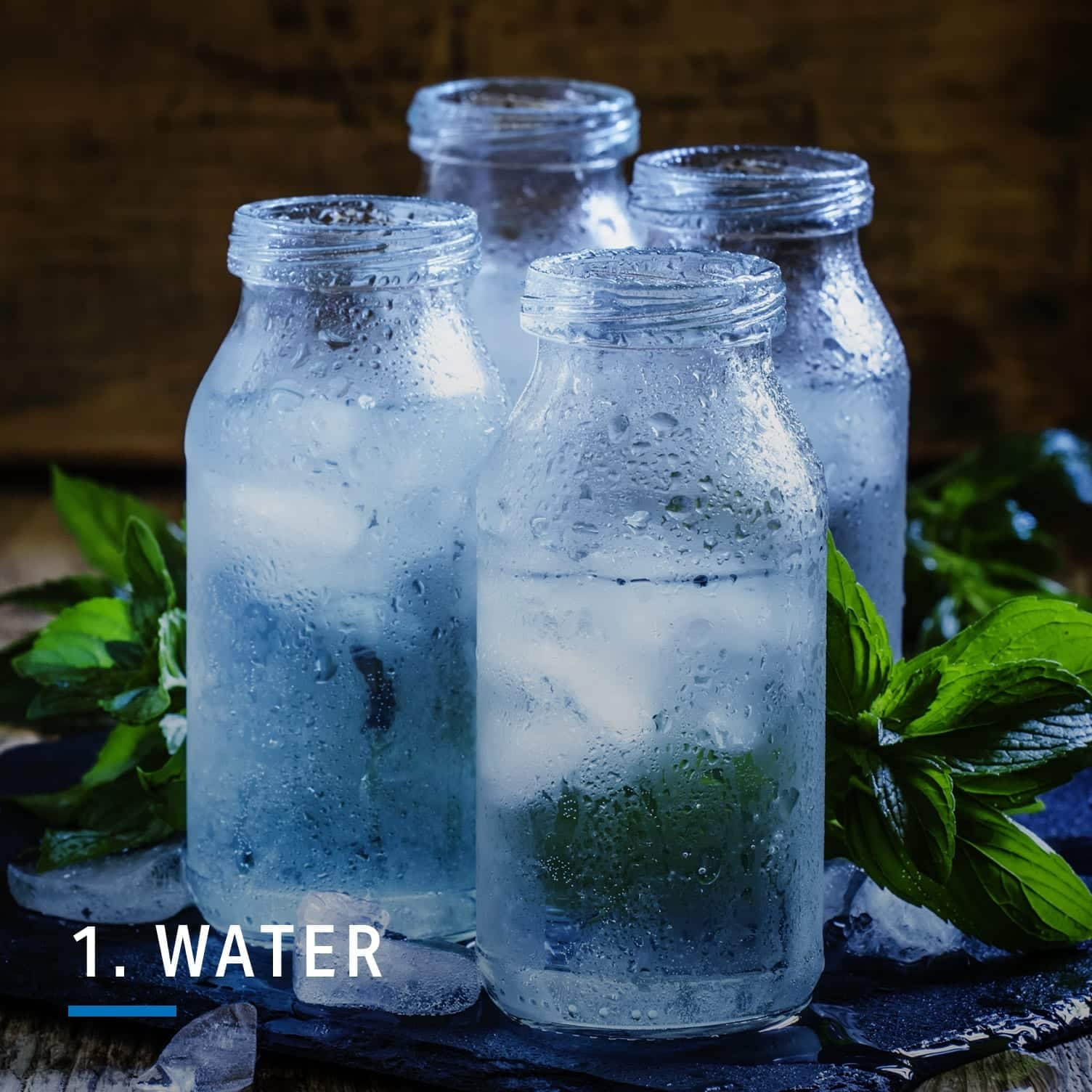
We all know how important it is to drink enough water — it restores fluids lost through breathing, exercising and metabolism. It’s the number 1 thirst quencher … and cheap! But the timing could make a difference, too. When you start to feel hungry, drink some water. A 2015 study in the journal Obesity found that participants who drank about 2 glasses of water before meals were more likely to lose weight than those who skipped the glasses of water and went straight to eating.
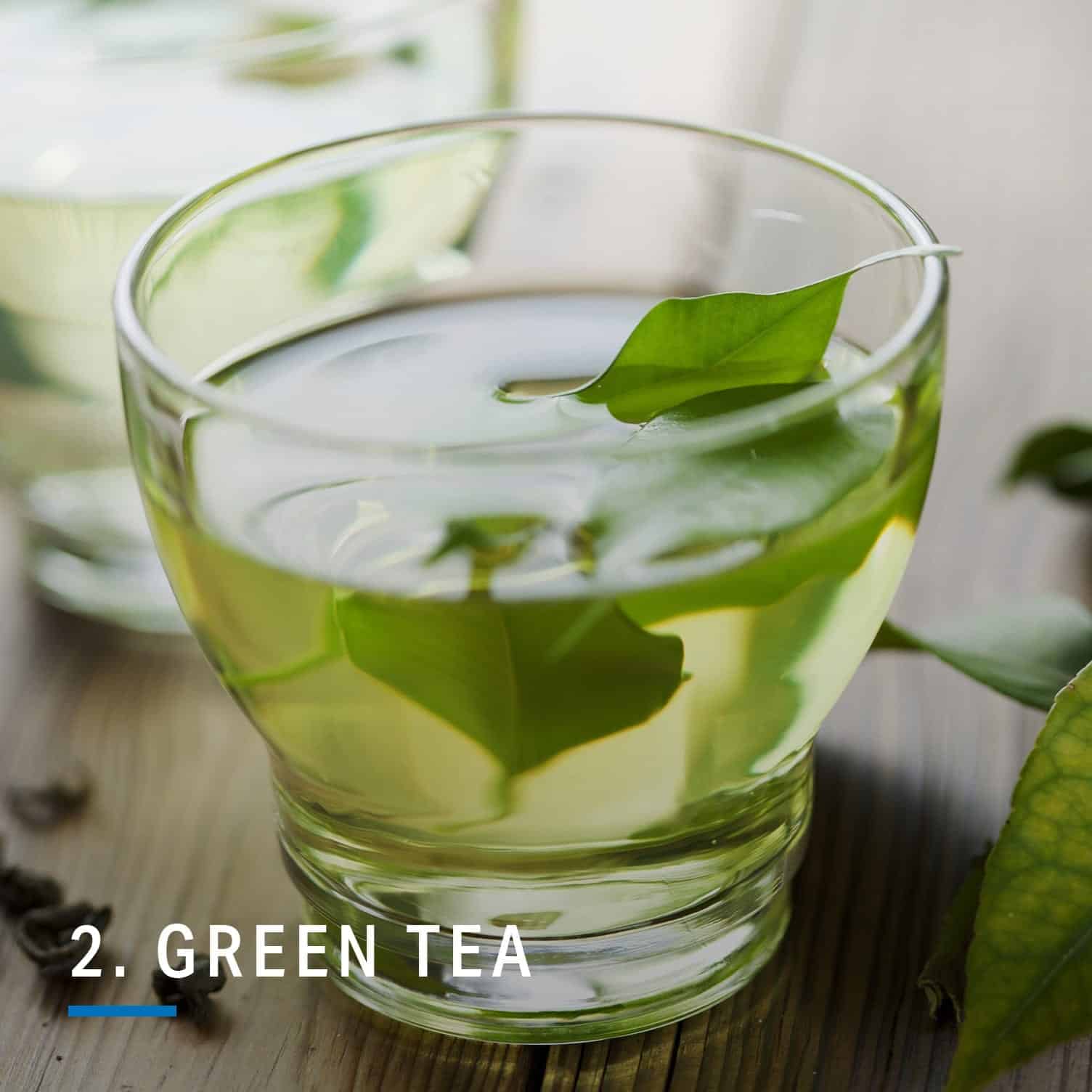
Drinking green tea regularly may not only boost your fat fighting metabolism, but may also play a key role in weight maintenance and hunger suppression. One study from the Journal of the American College of Nutrition found that in just two months, green tea drinkers lost an average of six pounds more than those who drank plain water. Green tea is also brimming with antioxidants and flavonoids that are good for overall health. Drink freshly brewed tea with no added sugar or cream — bottled store-bought varieties have fewer antioxidants (the concentration decreases the longer tea sits after brewing) and are often pumped full of honey or other types of sugar.
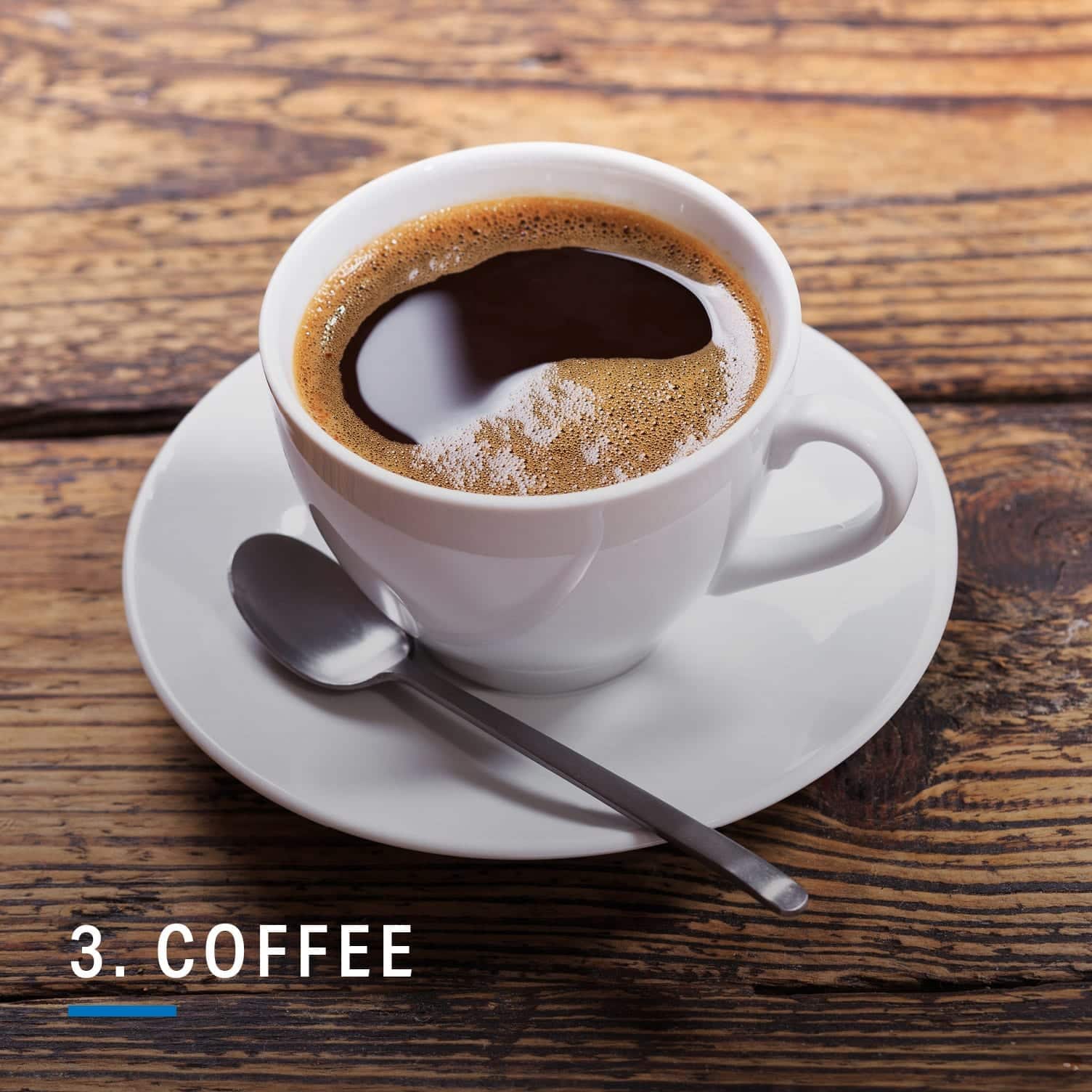
The morning java boost is a necessity for many of us, but there’s proof that the jolt may spur a better workout (translation: burn more calories). A study in the Journal of Sports Medicine and Physical Fitness found participants could do almost 20% more leg presses and 12% more bench presses when they drank 2–3 cups of coffee before their workout. A similar study found an (albeit small) increase in energy expenditure both before and after exercise in the group that drank coffee before exercise.
In addition, coffee positively affects the hormones that help improve blood-sugar regulation. Maintaining stable blood sugar is essential to your well-being, overall fitness, regulating your hormones and plays a role in how much fat your body is able to store and burn.
But before you get too excited, we recommend you skip the sugar and heavy cream. The benefits noted above are singular to black coffee — not the mostly sugar and milk-based lattes, frappes, and mochas from Starbucks, McDonald’s and Dunkin Donuts, which sell drinks that may contain more than 1/4 cup (50 grams) of sugar.
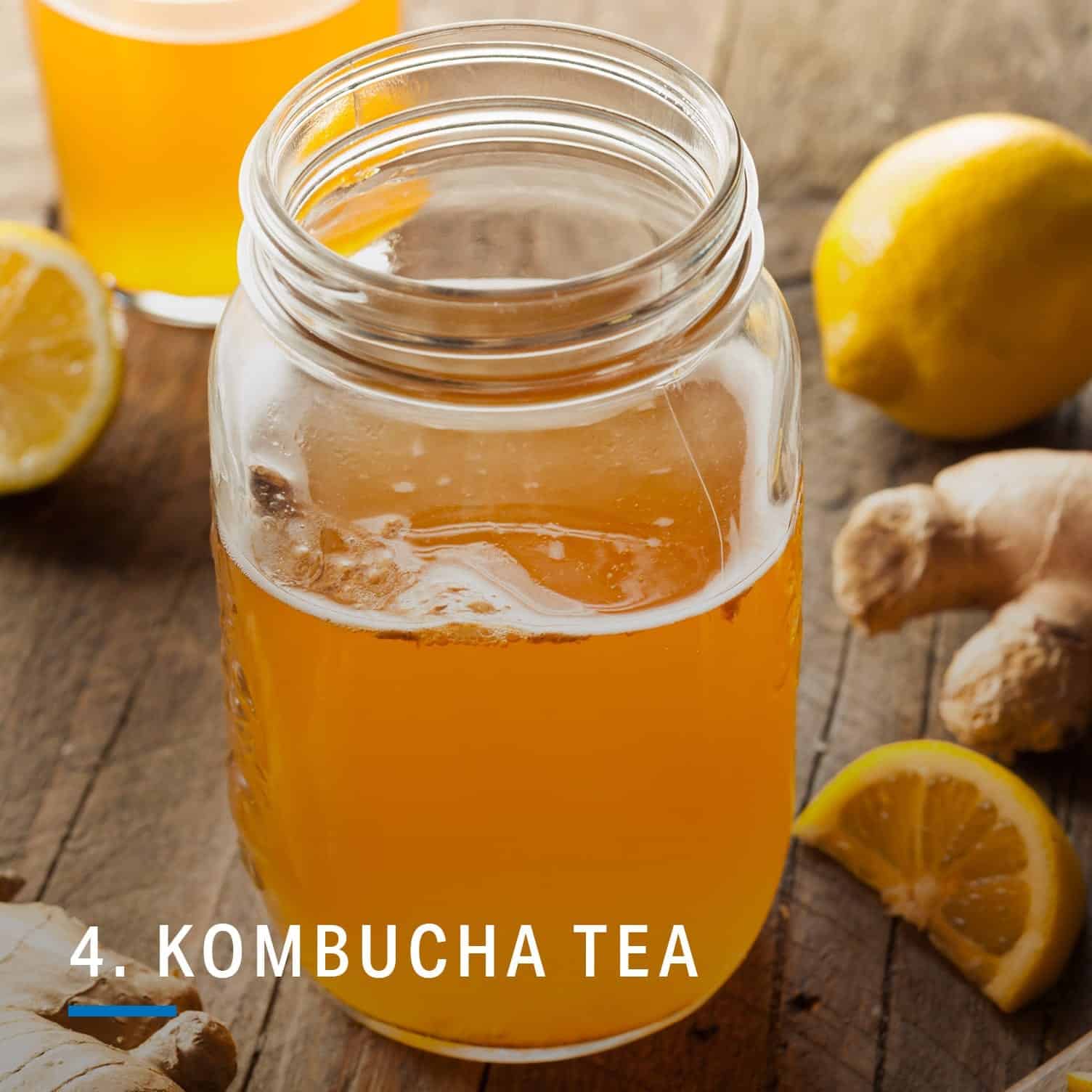
This fizzy, pleasantly puckery fermented beverage is made by adding a probiotic-rich bacteria to lightly sweetened tea. More and more research is looking into gut health and how it relates to obesity and weight, finding that the millions of bacteria that live in our guts may play a large role by altering the way we store fat, how we balance blood sugar and how we respond to the hormones that make us feel hungry and full. Fueling our gut with beverages and foods that stimulate good bacteria may make losing weight easier than we ever thought possible. Kombucha is readily available in most supermarkets and comes loaded with probiotics — just be sure to look for brands with less than 5 grams sugar per serving.
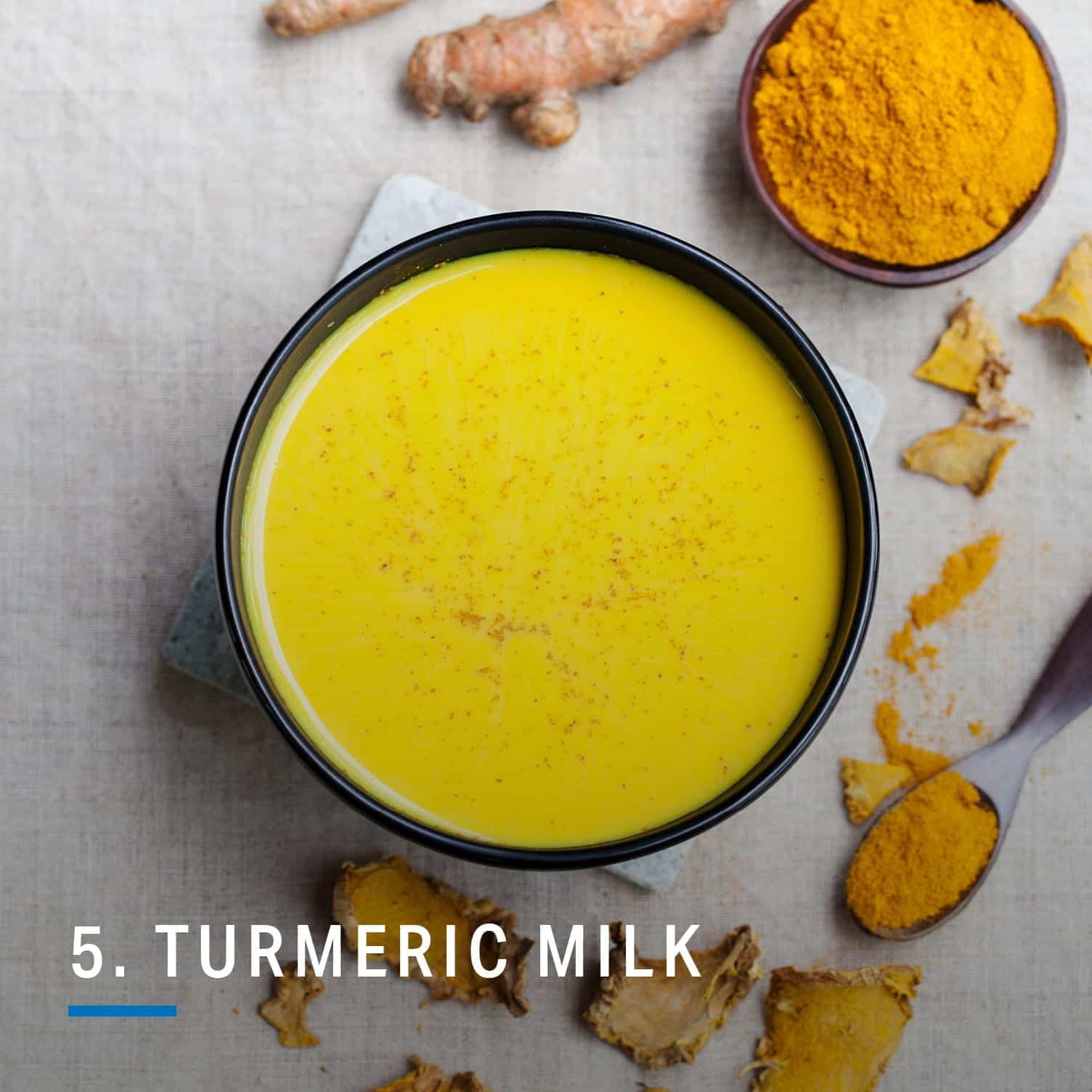
We’ve said it here before: Sleep is essential for more efficient weight loss. Drinking turmeric-steeped warm milk before bed may help you catch more zzz’s. The brain uses calcium and tryptophan (both of which are found in dairy products) to make sleep-inducing melatonin.
Turmeric contains a component called curcumin, which may shrink the size of adipose cells and limit fat accumulation. Curcumin also stimulates antioxidant effects, reduces inflammation and may help relieve anxiety. Research on turmeric is still young, but it certainly can’t hurt to add this warming spice to your nightly routine.
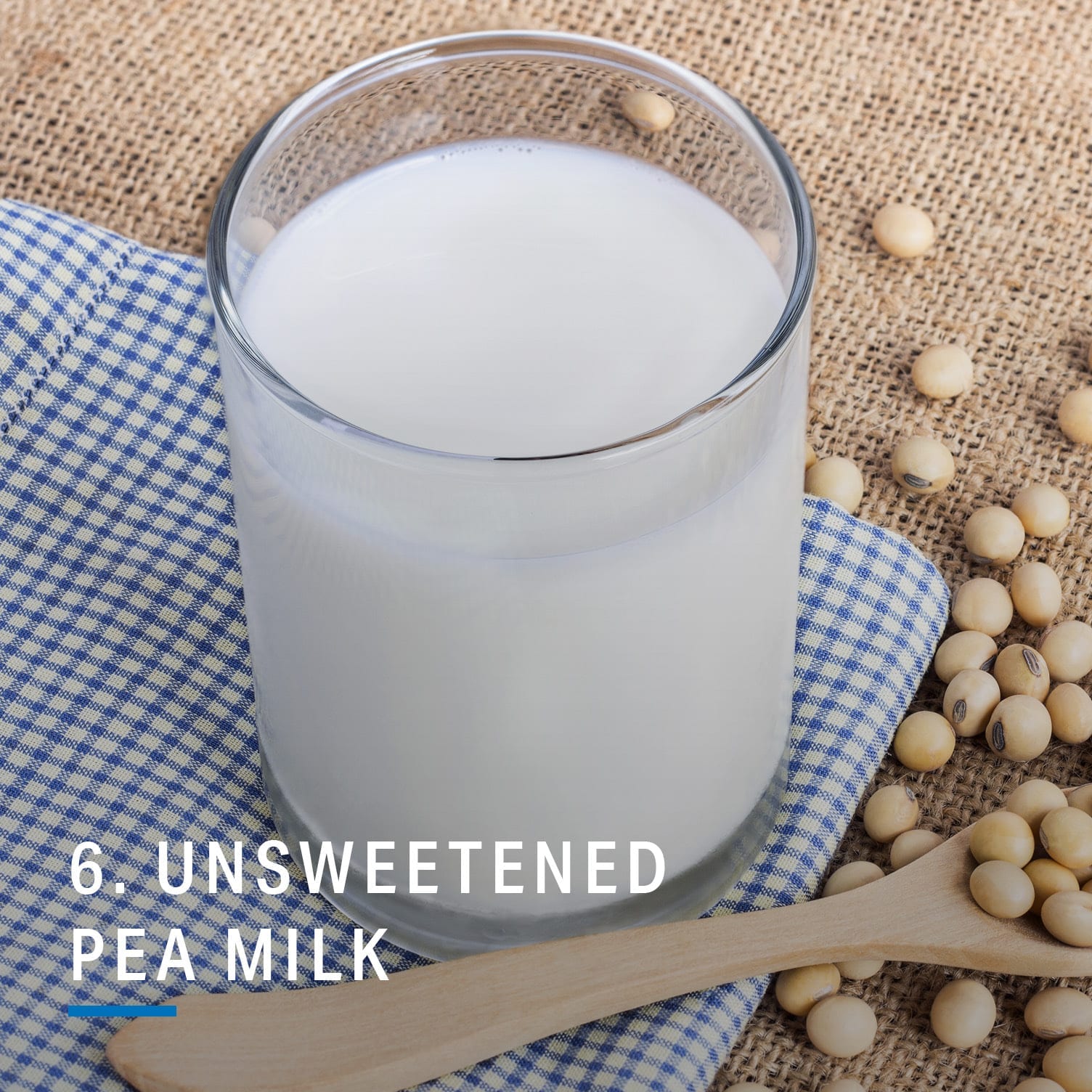
One of the more recent additions to the plant-based milk alternative line up, pea milk has an impressive 8 grams of satiating protein per cup — more than most other nut, seed and legume milk on the market. Unsweetened varieties have zero sugar, less than 1g carbohydrate (great for those aiming to eat fewer carbs) and only 70 calories — an impressively low number in comparison with other milks. It has also been enriched with more calcium than it’s dairy counterpart, more potassium than a banana, plus more than 30mg of omega-3 fatty acids (about 1/3 of the daily recommended amount), 30% of your daily recommended vitamin D and 10% DV of vitamin A. It has fat, too (nearly all of which is unsaturated), which is a necessity to absorb those essential (and fat-soluble) A and D vitamins. What’s more, it has a mild flavor that’s nothing like peas. You can add it to smoothies, cereal or even drink it on its own.
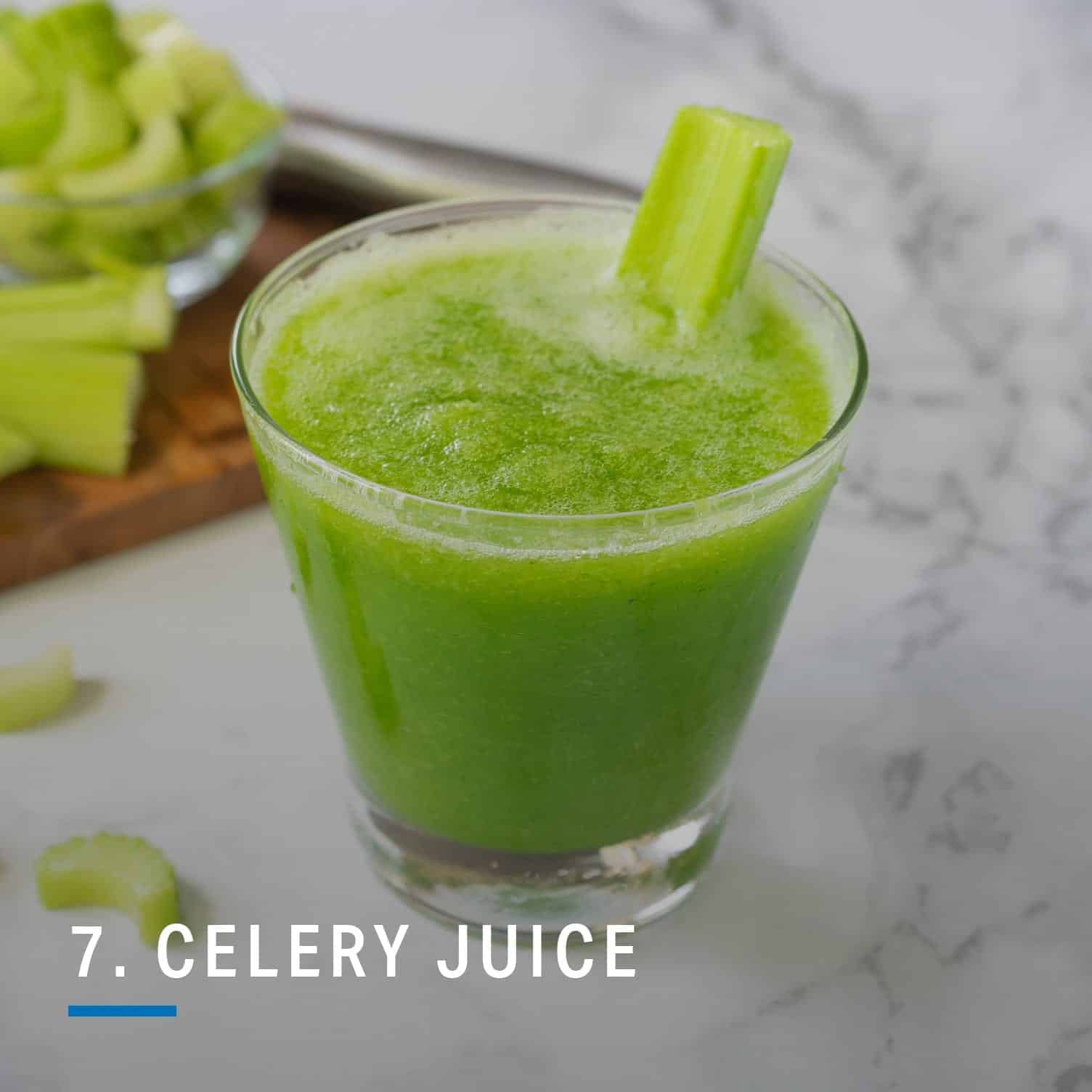
As simple as tossing a few celery sticks (with the antioxidant-rich leaves) into a blender and pouring the mixture through a strainer, celery juice has become a trendy green option. However, it’s not meant to replace a meal (like some other juices), but instead should be used to enhance a balanced, whole-foods diet. Touted benefits include liver detoxification, lowered blood pressure, improved acne, better mental and emotional health and yes — even weight loss. While there’s little to no research on said benefits, the good news is the beverage is virtually absent in sugar and very low-calorie. Typically, juices are loaded with sugar and have little to no fiber — a key player in the satiety department. Celery juice has more potassium and vitamins C and K than tomato or carrot juice, with far less sugar and carbohydrates. It’s almost 95% water, so it can help with hydration, which is important for weight loss.
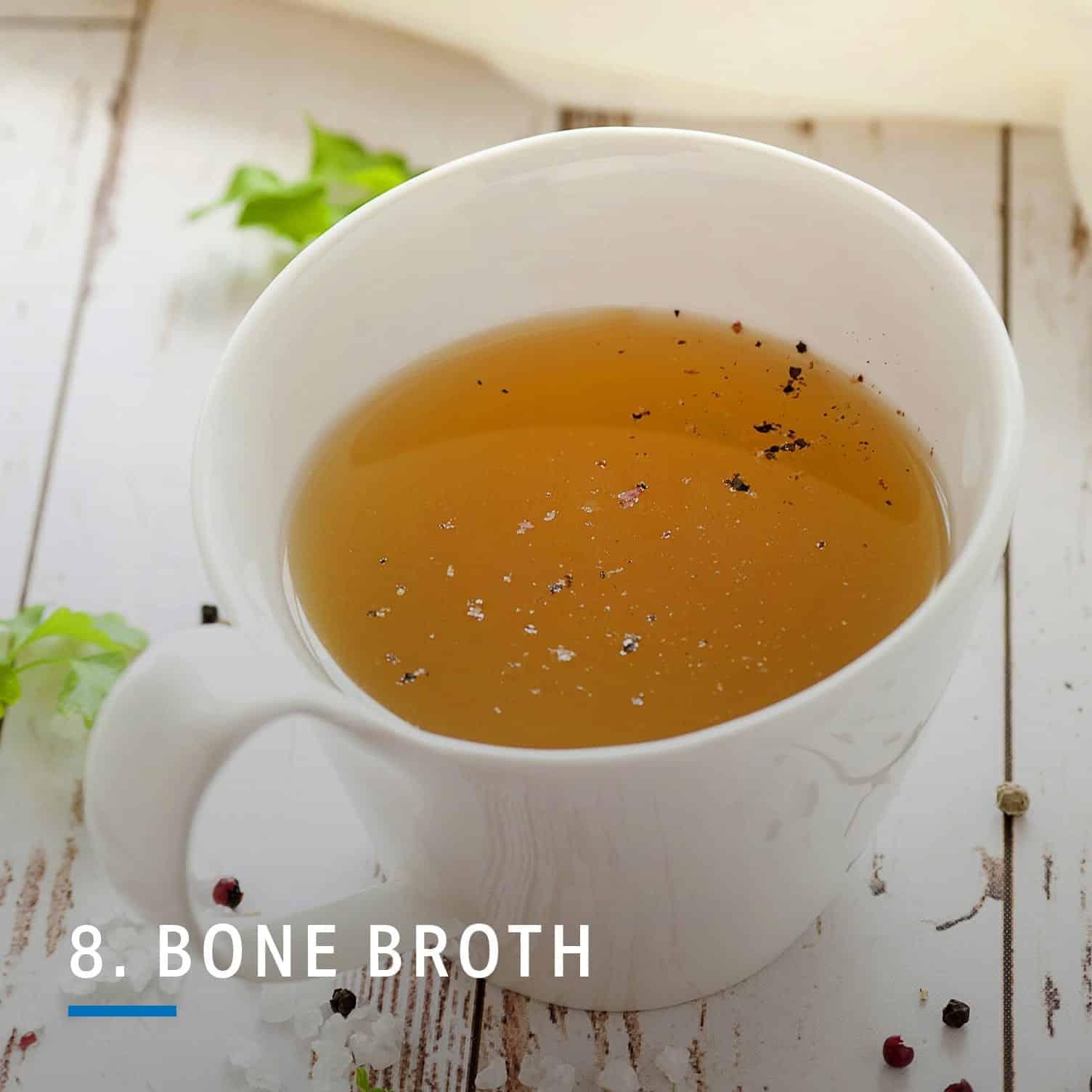
Bone broth is made by boiling roasted animal bones and connective tissues down for a long time — often as long as 24 hours. This low and slow simmer allows the marrow and collagen to filter out of the bone, creating a nutrient-dense broth loaded with amino acids (aka protein), vitamins and minerals like phosphorus, calcium, iron and magnesium. Some research says bone broth can help enhance immunity, improve digestive health, fight inflammation and even promote skin elasticity from the high levels of collagen. It also contains electrolytes like sodium and potassium, making it a great recovery drink after a tough workout, and certainly better than a sugar-and artificial-color loaded rehydration drink. Homemade bone broth is also a great way to minimize food waste and use the bones from short ribs, bone-in steak, and whole roasted chickens or turkeys. Homemade is not only cheaper and more resourceful but healthier, too, as store-bought may have additives, preservatives, thickeners and added salt.
Originally published April 2019, updated with additional reporting
Unlock an experience that’s like having a dietitian, trainer and coach — right at your fingertips. Go Premium for expert guidance and exclusive tools that will help you reach your personal health goals.
